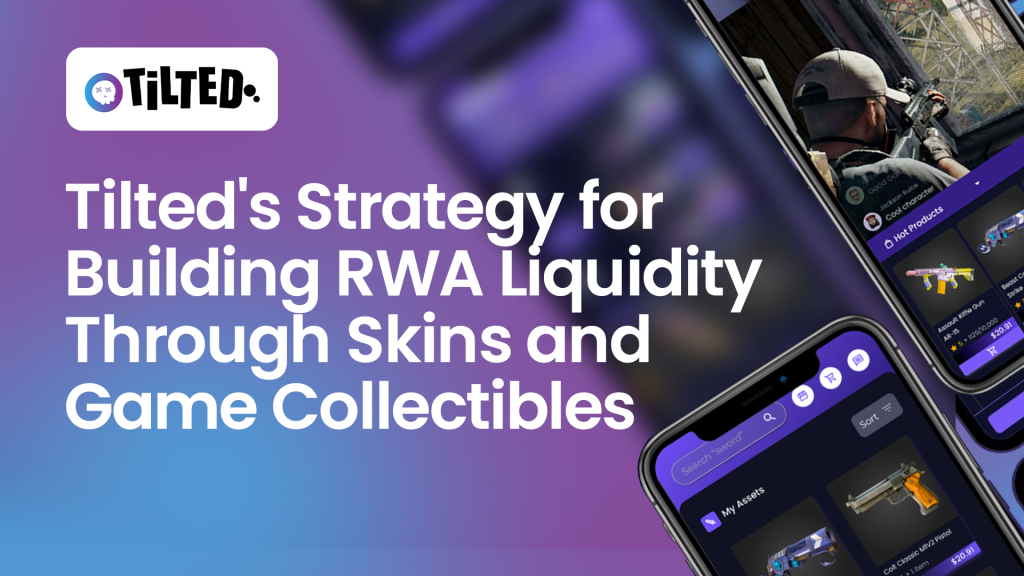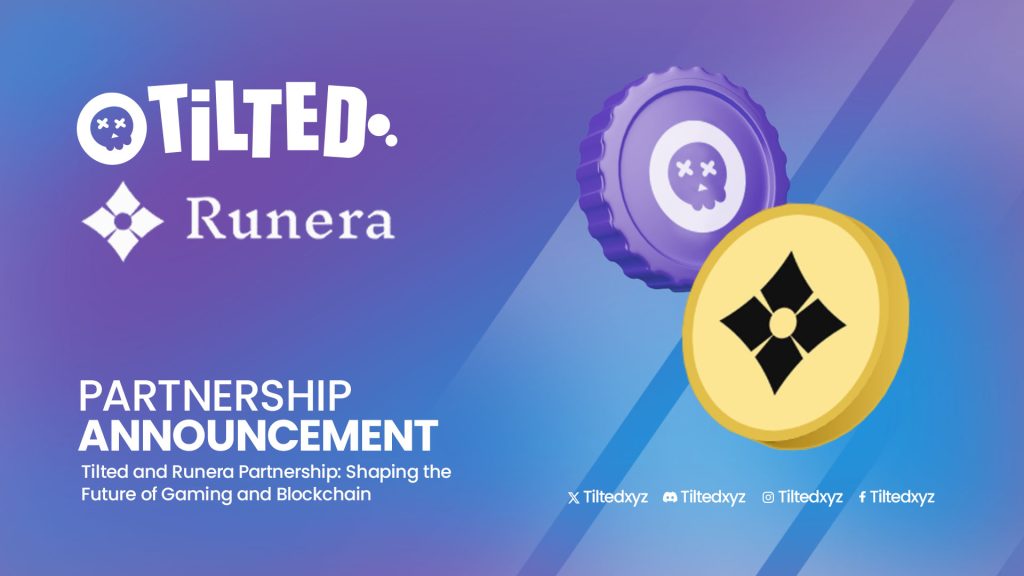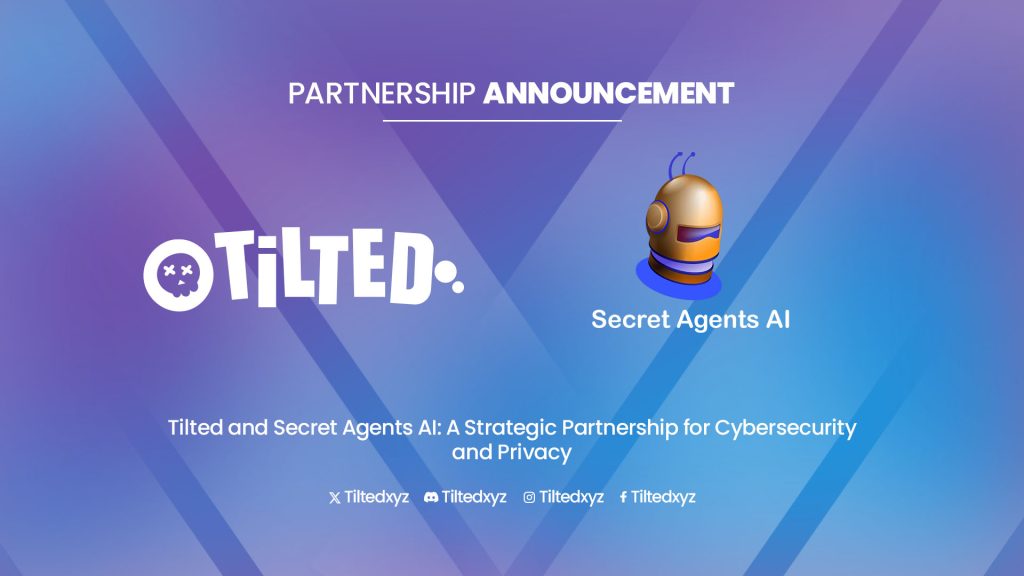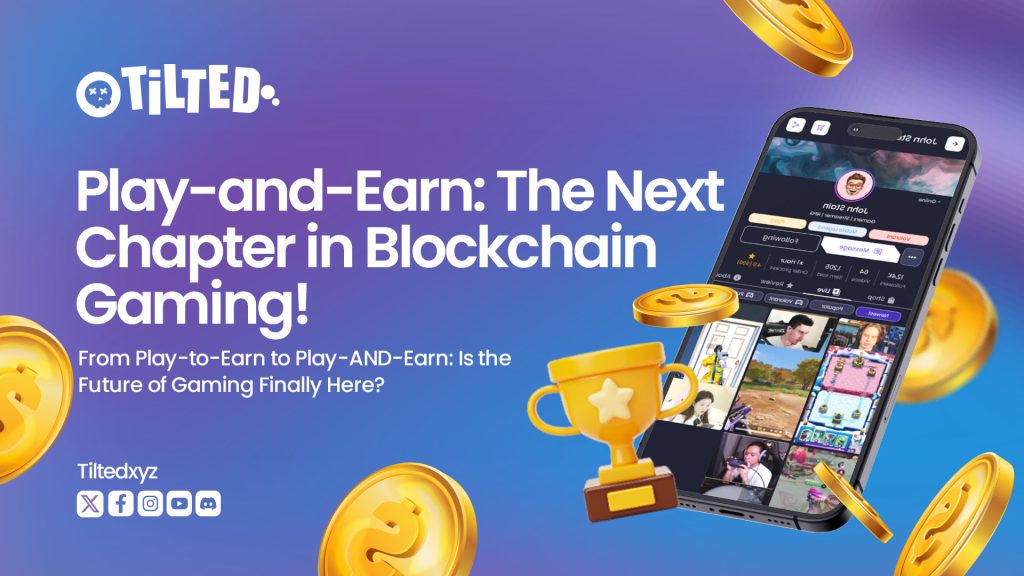Tilted is pioneering a transformative approach to enhancing Real-World Asset (RWA) liquidity through the gaming ecosystem. RWAs are valuable digital items that bridge the gap between virtual and physical assets, creating new economic opportunities. As RWAs gain traction in the digital economy, Tilted is positioned to reshape how players and developers engage with these assets across the business of gaming.
Tilted integrates blockchain technology with gaming, offering a TikTok like marketplace for digital assets. Its mission is to create a user-friendly environment that facilitates secure transactions and monetization strategies. By focusing on RWAs, Tilted aims to drive user engagement with its app, a TikTok Shop for game assets that extends to the gaming creator economy. Think of Tilted as the Twitch of Web3!
The skins market in gaming plays a crucial role in this landscape. Skins are virtual cosmetic items that alter the appearance of characters or weapons. They can be categorized into cosmetic skins, which are purely aesthetic, and functional skins, which offer gameplay enhancements. The skins market has experienced explosive growth, generating significant revenue for developers through both primary sales and vibrant secondary markets. Recent trends indicate a shift towards personalized and limited-edition skins, driving demand and encouraging player investment.
Tilted’s approach to building RWA liquidity revolves around tokenizing skins, characters and player profiles which creates unique digital assets that players can own, trade, and sell. This process enhances the value of game items, making them integral to the gaming economy. By focusing on Tilted’s Web3 Gaming Loyalty Rewards Alliance and ecosystem partnerships with game developers, Tilted boosts primary sales of skins & items, attracting more players to its marketplace. Additionally, Tilted creates liquidity pools for skins, facilitating primary and secondary sales and encouraging active participation from players. This not only increases liquidity but is a lot of fun!
Game collectibles, which are unique items that players can collect and showcase, also play a vital role in RWA liquidity. Collectibles enhance player engagement and retention by encouraging exploration and investment in the game. Tilted integrates collectibles into its RWA strategy by implementing initiatives that boost the collectibles market and promote community-building. For example, Tilted aims to sell fractional ownership of some high value game items in the $1Million plus category, but as of today, the time of writing this article the average game asset within Tilted is worth $290. Tilted as of today, has 1.4 Million game assets for sale inside of its marketplace from Tier 1 games like Counter Strike 2.
However, the journey towards enhanced RWA liquidity comes with challenges. Regulatory implications surrounding RWAs in gaming must be navigated to ensure compliance and protect players. Additionally, market volatility can impact liquidity, necessitating strategies to mitigate risks. Tilted must also establish robust security measures to prevent fraud in the secondary market, addressing player concerns about ownership and asset value.
Looking ahead, the market for RWAs in gaming is projected to expand, driven by increasing player interest and technological advancements. Tilted envisions a future where RWA liquidity becomes a cornerstone of the gaming economy, benefiting both players and developers. The integration of RWAs is expected to reshape the dynamics of the gaming ecosystem, creating new pathways for monetization and user engagement.
In summary, Tilted is redefining RWA liquidity in gaming by enhancing the skins market and integrating game collectibles. This approach not only benefits players and developers but also lays the groundwork for a growth in UGC, the creator economy where game items and maps meet creators where they are. Game developers and stakeholders are encouraged to explore the opportunities presented by Tilted’s RWA framework to fully harness its potential. Tilted’s framework is available to game developers as an SDK, and aims to release a plugin for Unity as well in 2025.



